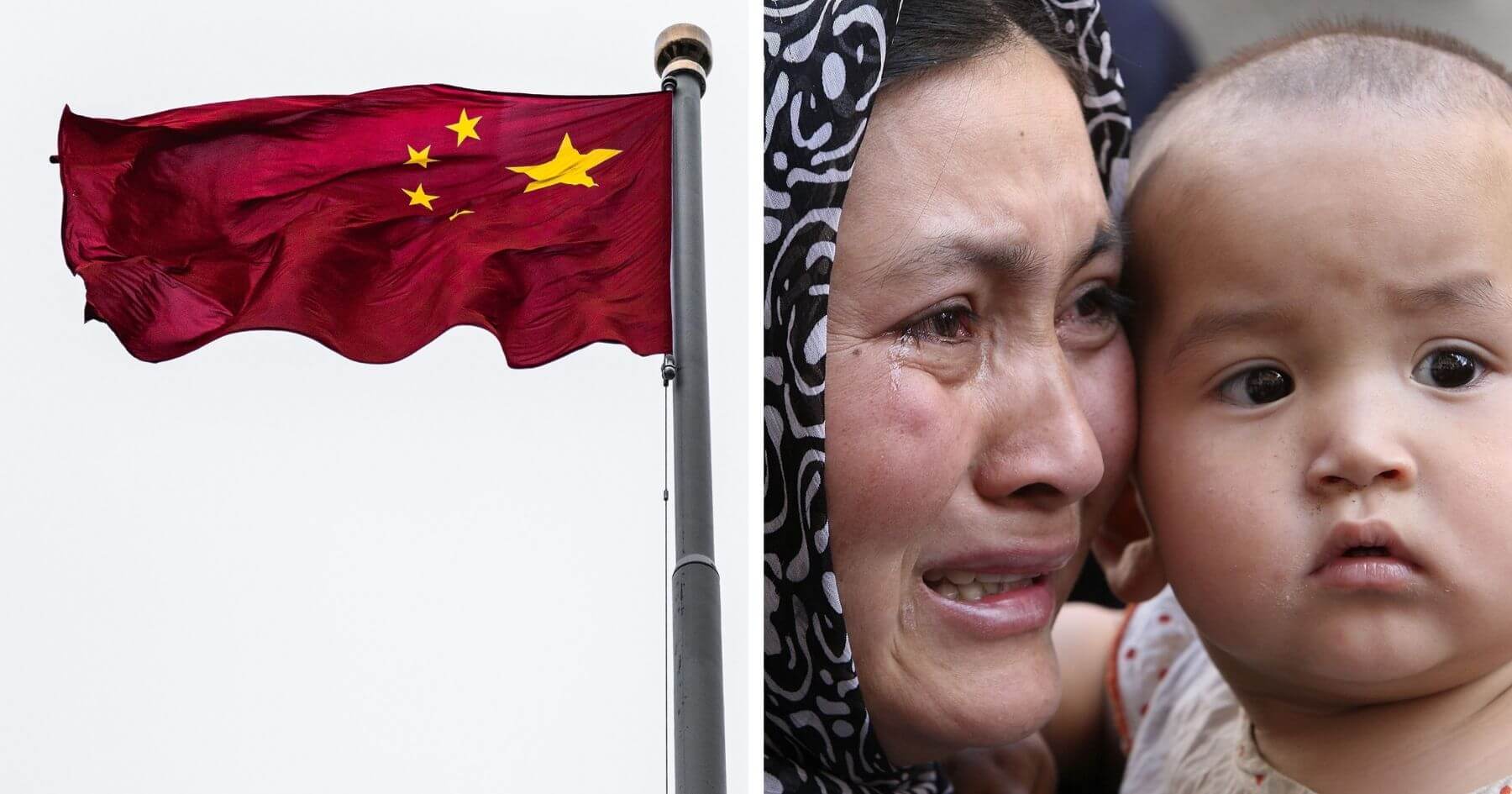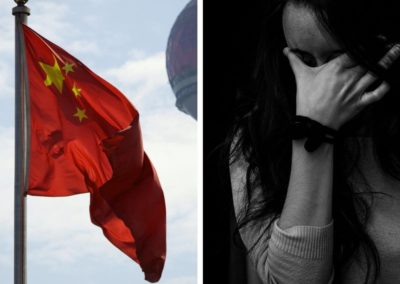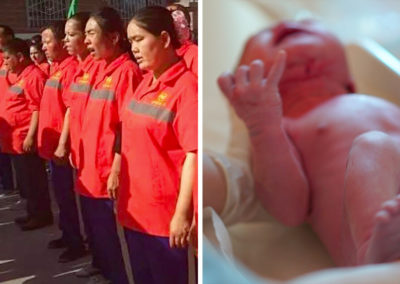Xinjiang in Northwestern China has reportedly experienced the sharpest known decline in birth rates of any territory in recent history between 2017 and 2019.
While the results of the census in China show that the population has grown by 0.53% bringing the population to 1.41 billion, a report from the Australian Strategy Policy Institute (ASPI) revealed a 48.74 per cent decline in birth rates in Xinjiang, the province where the Uyghur community forms the majority of the population.
The ASPI report comes at the same time as reports that the Chinese Communist Party (CCP) is systemically slashing Uyghur birth rates with sterilisations, forced abortions and intrauterine devices, and fining and detaining people who exceed the permitted number of children.
Such a collapse in birth rates is unprecedented since the UN began collecting global fertility statistics in 1950. According to the ASPI report, the collapse is even more severe than the collapse in birth rates that occurred during the genocides in Rwanda and Cambodia in the last century.
Nathan Ruser, an ASPI researcher and co-author of the report, said:
“As far as it’s possible to find out, it is by far the largest drop there is. It makes you realize the scale of these family planning policies and the scale of this crackdown, the scale of societal control that authorities are looking for”.
The ASPI and other researchers have come under attack from the CCP for their investigations and reports.
Forced abortion and sterilisation among the Uyghur in Xinjiang
Forced abortions and sterilisations are a well-documented phenomenon in China. Only in 2013 was the “One Child Policy” eased. Under this policy women across China were forcibly sterilised at the risk of losing government homes or jobs, female babies were abandoned and killed en masse and hundreds of millions of forced abortions were performed.
Last year, a Uyghur doctor who escaped China shared how she participated in at least 500-600 operations on Uyghur women in the country, including forced abortion, forced sterilisation and forced removal of wombs.
Speaking to ITV News, the Uyghur woman also revealed abortions were carried out at full term and that infanticide – the purposeful causing of a baby’s death – was common practice.
In Westminster, pressure is mounting on the Government to confront the Chinese Communist Party as MPs draw attention to the population-suppression measures taken against the Uyghur minority in Xinjiang, China.
A Uyghur from Korla in the centre of Xinjiang, Eysa Imin, recalled eight people in his neighbourhood detained for having too many children. In 2017, he was arrested and put in a detention centre where he ended up sharing a cell with an old schoolmate who had been arrested, tortured, and interrogated for having four children.
“When they arrested him, they said it was a sign of extremism”, Imin said. “The government started connecting having many children with Islamic extremism […] It feels like they want to eliminate us”.
Such accounts are corroborated by a 137-page government document leaked last year from Karakax County, in southwestern Xinjiang, which revealed that one of the most common reasons cited for detention was violating birth-planning policies.
Those who refused to have an abortion for illegal pregnancies or pay fines would be referred to the internment camps, according to one government notice from a county in Ili, unearthed by German researcher Dr Adrian Zenz.
Authoritarian rule
Under President Xi Jinping, China’s authoritarian leader, state-backed scholars have begun calling on the government to crack down on large religious minority families, calling them breeding grounds for terrorism and extremism. In April 2017, Xinjiang’s top official called for the “effective containment of illegal births” in the southern areas of Xinjiang, where most Uyghur populations are located.
Earlier this year the CCP claimed that the collapse in population growth of the Uyghur community in Xinjiang is due to the “eradication of religious extremism” and not the result of extensively documented forced abortions and sterilisations.
On Thursday 8 January, the state-run publication, China Daily, claimed: “Decreases in the birth rate and natural population growth rate in the Xinjiang Uyghur autonomous region in 2018 resulted from the eradication of religious extremism”.
China Daily cited a study on population change by the Xinjiang Development Research Center claiming that “extremism had incited people to resist family planning and its eradication had given Uyghur women more autonomy when deciding whether to have children”.
The state-controlled media outlet quoted the report as saying: “For a period of time, the penetration of religious extremism made implementing family planning policy in southern Xinjiang, including Kashgar and Hotan prefectures, particularly difficult […] That had led to rapid population growth in those areas as some extremists incited locals to resist family planning policy, resulting in the prevalence of early marriage and bigamy, and frequent unplanned births”.
“The minds of Uyghur women in Xinjiang were emancipated”
In a Tweet linking to the article that references the study from the Xinjiang Development Research Center, the US Chinese Embassy said:
“Study shows that in the process of eradicating extremism, the minds of Uyghur women in Xinjiang were emancipated and gender equality and reproductive health were promoted, making them no longer baby-making machines. They are more confident and independent”.
Twitter subsequently removed this post stating it had “violated the Twitter rules”. Revealingly, the Chinese Embassy’s Twitter account later reposted the story under a different caption:
“Study shows the population change in northwest China’s Xinjiang Uyghur Autonomous Region involves the overall improvement in population quality. An increasing number of youths chose to spend more time and energy on personal development”.
According to other Chinese state media reports, women were “spontaneously” taking up free IUDs and voluntarily being sterilised. The changes in birth rate, the state-run media say, were due to government limits on family size, poverty alleviation, and education improvements, in addition to changes to cultural marriage practices and religious opposition to contraception.
Right To Life UK spokesperson, Catherine Robinson, said: “The ongoing persecution of the Uyghur population by the CCP is sanitised through euphemisms like “family planning”. The targeted forced sterilisations and abortions against the Uyghurs are much closer to ethnic cleansing via eugenic means. The almost 50% collapse in birth rate is an indication of how truly genocidal the CCP are. Abortion in particular, especially forced abortion, is a gross attack of the CCP on its own people”.












